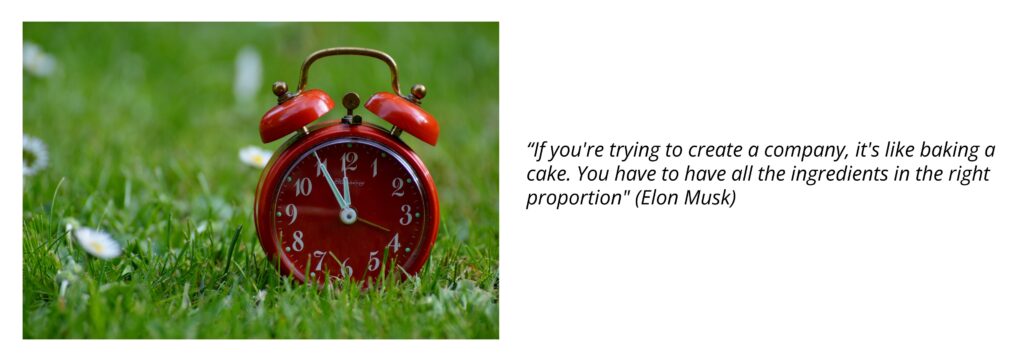How The Gig Economy Is Changing Traditional Businesses

The move to the gig economy has been in the works for years. Even before the pandemic people were leaving their jobs to “consult independently” from small towns around the big cities. Younger generations with in-demand skills found themselves capable of earning more money, and having more flexibility, while working at home, and this situation was only exacerbated by the huge retrenchments and wage cuts demanded by the pandemic.
Now, more than two years after the start of the Covid-19 crisis, gig workers and freelancers have become a common way of doing business. With greater control as to who they work for, and the ability to spread their time over multiple employers thereby lowering their risks regarding retrenchments or layoff, gig workers have more control than ever before when it comes to their day-to-day lives. The gig economy also allows its freelancers to work on new skills, while keeping up with the work necessary to pay the bills. There are, however, guaranteed downsides too. The gig economy is not as stable for those who work. Month-to-month employment is not guaranteed. Holidays are a rare commodity with client needs dictating time off rather than mental fatigue or family commitments.
Companies who hope to bring in the skills they need will have to be cognizant of both the positives and the negatives of freelance life in order to maximise the happiness of those they contract with, and so achieve the best delivery at the best prices for themselves. Here are our tips for how the gig economy will impact businesses going forward and how best to weather the changes to benefit your brand:

 Is Corporate culture a dinosaur?
Is Corporate culture a dinosaur?
With the Covid pandemic moving to endemic status many corporate managers are demanding their teams return to the office. The belief is that “Corporate Culture” is suffering and this will impact the quality of work done in the long term. Corporate culture is a term generally used to explain the sense of camaraderie and teamwork that employees are meant to feel toward their jobs. This sense of belonging and sense of loyalty toward the brand they work for has long been shown to impact the level of work employees are prepared to put into their positions and team leaders believe this is eroded by working from home, and non-existent in freelancers. This is however not necessarily so.
A recent study here has shown that the sense of corporate culture and commitment to a brand’s long-term goals can in fact be felt by freelancers but cautions employers that they may have to change the way they have traditionally imposed this culture. In the traditional employment model commitment to a brand is driven in three ways:
- Employees stay and work hard because they feel affection towards the company and enjoy working there
- They fear the consequences of losing their work, and
- Over time they also develop a sense of duty and obligation to the company that has looked after them.
The study conducted by Stefan Süß and Markus Kleiner suggests that brand loyalty in freelancers is won only through “Affective commitment.”
Affective commitment is that feeling of connection one feels to an organisation or group when they believe that their own personal goals and beliefs are aligned with those of the organisation or group and when they feel that they are an integral part of any team within that organisation. Freelancers tend to feel no obligation towards one employer and their fear of losing their job is significantly decreased by the presence of multiple employers.

 How can you inspire commitment in freelancers?
How can you inspire commitment in freelancers?
Affective commitment has always been an important part of employee retention. For freelancers, however, affective commitment is the main reason they remain driven and invested in their work for that organisation. So how does a company inspire this kind of commitment?
- Open and clear communication: If an employee is to believe they are personally aligned with a business, the brand’s beliefs and messages must be strongly communicated. It must also be clear how the employee fits within these beliefs, what their role is and how they contribute, both now and in the future. With freelancers, companies should communicate openly, sharing its struggles and achievements. In order to feel concern for a team, the freelancer must feel trusted and part of the team.

- Make the job fun: Freelancers report greater attachment to brands when they enjoy their jobs and relationships. Allowing freelancers the opportunity to take on new challenges and roles within the company and expand their initial positions will give them the variety and mental stimulation they require.

- Inclusivity: Everyone wants to feel like they are liked and part of a team. Including the freelancers in activities just as you would your full-time employees gives them that sense of belonging and more importantly of being valued that is difficult to find in the freelancing environment.

- Demonstrate commitment: One of the largest downsides for freelancers is the feeling that their work is always temporary or that if you hit trouble, they will be the last in line to be paid. Thinking about how you can improve freelancer wellbeing will therefore go a long way to building trust and belief in your company. This goes well beyond always paying your freelancers on time. Your freelancers are working from home and often at all hours, so consider sending them a gift basket upon completion of a job, arranging a discount for good coffee with a local coffee shop or regular check-ins with management at which they are able to offer feedback and make themselves heard.

- Develop them: If you want to retain your freelancers long-term, then you need to think of their aspirations. Helping them to develop new skills and grow as people will benefit your brand in the long run in that it will position your company as being at the top of their list when it comes time to meeting deadlines and making space within their schedules.

 Agile HR
Agile HR
One of the largest benefits for companies in the gig economy is that it gives them more flexibility to respond to changing situations. Companies can now scale their workforces up and down as needed to respond to new business opportunities or challenges and can also quickly assemble new teams for a single project or move people between teams to cope with staff shortages or leave. Why spend millions on recruitment when you aren’t even sure the new project is going to last longer than a year? Your HR team, therefore, needs to be trained and upskilled to take the gig economy into account when considering the employment needs of the company. They should be working directly with your accountant on a project-by-project basis to determine the most streamlined use of available resources. Your company can now work with freelancers from across the globe and those with the ultra-niche skills necessary to complete a particular task. Accordingly, HR needs to be up to the task of searching for talent wherever it may be, as well as things like international law regarding payments and tax.
In fact, your HR team may be about to become even more valuable than they have ever been in the past. Whereas once they were managing a limited team of employees, they may now be required to deal with hundreds of different people working in dozens of different locations, while keeping everyone happy, delivering proper communication and ensuring many different payment styles and preferences are adhered to and regulations complied with.

 Empower flexibility
Empower flexibility
Freelancers and workers who generally work from home do so because it gives them more flexibility with their workdays. Dads are able to nip out to pick up their kids from school, and the plumber’s visit doesn’t have to be scheduled for a weekend. Employers, therefore, need to consider these benefits and lean into them. For example, it doesn’t make sense having dedicated office space for everyone when 80% of the time those people are working at home.
This, together with the fact that your teams will be adjusting in size and purpose a lot more in future, makes creating agile workspaces critical. Building workspaces within your own office where multiple flexible workers can use the same general space will allow them to check in, grab a coffee, have meetings and fill a few work hours without hampering their desire to work where and how they like. There should be a variety of conference rooms to accommodate teams of various sizes and excellent connectivity throughout. Teams should be able to meet around a whiteboard while patching in workers from other countries on screen, or alternatively find small, comfortable corners to share a coffee. As an added bonus, this flexibility will also save your company a huge amount in rental for dedicated workspace and equipment and allow freelancers to come in and meet the people they are working with in a way that strengthens team cohesion and doesn’t interrupt the full-time employee’s days.
Employers should also consider the mobile nature of work outside the office. Your employee who has to pick up their kids in the afternoon, would almost certainly love to work for the hour while they wait for their child to do karate so make sure they have the means to do so. Empowering them to work on-the-go will allow them to deliver more work, more consistently and get their jobs done well, wherever they may be. A good laptop and mobile connection are now vastly more important than an office chair.

 It’s cheaper
It’s cheaper
Done right, leaning into the gig economy can save costs that are far larger than simple office space. Recruitment is expensive and full-time employees come with issues like benefits, severance pay and even leave, whereas the freelancer is responsible for taking care of these issues themselves. If you really need someone to work over a specific period you can hire for availability rather than worry that an employee’s sickness will keep them from delivering at a critical time. It is clear that, while the gig economy may provide some short-term disruption, the long-term benefits of working with freelancers can vastly exceed the challenges. Companies need to accept that life has changed, and the days when they employed 100% of their staff to clock in from 9-to-5 are long gone. And for many businesses it’s going to be for the best.

